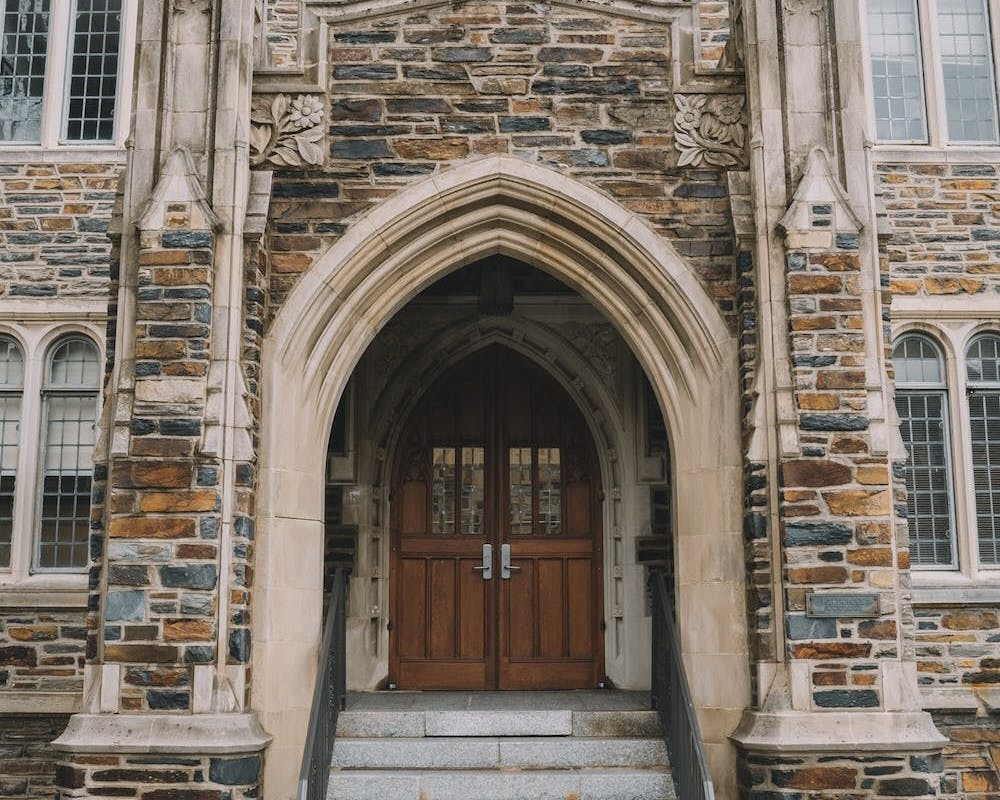Academic Council had a panel discussion about Duke’s Climate Commitment and approved a new tenure track pathway for faculty in the creative arts in its February meeting.
In January, the Council heard a proposal to change the tenure policy for faculty in creative arts departments to allow for faculty with master of fine arts degrees to receive tenure. The University’s policy requires that faculty, under most circumstances, have a doctoral degree to receive tenure. However, in the creative arts, MFA degrees are considered to be terminal degrees as opposed to a doctoral degree. The proposal passed unanimously in the February meeting, with one abstention.
The panelists for the climate discussion were Elizabeth Albright, assistant professor of the practice of environmental science, Emily Bernhardt, James B. Duke distinguished professor of biology, Saskia Cornes, assistant professor of the practice of the John Hope Franklin Humanities Institute, and Norbert Wilson, professor of food, economics and community in the Divinity School.
Erika Weinthal, professor of environmental policy and public policy, moderated the discussion.
Bernhardt asked the Council how they felt when she said, “Let’s talk about climate change.”
“Not good, right?” said Bernhardt in response to the Council’s negative reaction. “I've been asking this to lots of audiences … our students almost universally feel much more anxious, more angry, more sad.”
Weinthal asked the panelists what they believe should be incorporated into the Climate Commitment.
Cornes highlighted the urgency of the climate crisis. She urged faculty who may not have their primary research focuses in climate science to think about ways in which they could apply their research to help with mitigation efforts.
“I think our window of opportunity is actually quite small and I would love to see more people seeing themselves in this work,” she said. “I think we all have our own professional agendas, research agendas, our own lives, but I think it's really sort of past the moment to start thinking about this as the work of some other disciplines, some other sectors, some other generation.”
Bernhardt agreed with Cornes on incorporating faculty from across the University into the mission of the Climate Commitment.
“We need to find ways to make space and time and opportunity for every faculty member in the interest of this to be engaged and to bring this into their classrooms and their research,” she said.
In order to do so, Albright said that the University needs to think about changing promotion requirements for faculty members. Promotion and tenure for assistant professors, particularly at a top-ranked research institution like Duke, requires several publications in high impact journals within their discipline.
“I think a lot of the work, particularly in the field of environmental justice, it's slow. It's not going to be published in maybe the top tier journals,” Albright said.
Bernhardt also said that Duke should take a closer look at the sustainable operations pillar of its Climate Commitment. She said that students are “paying attention” to where Duke is falling short on its commitment.
“Why are all the lights on in all these buildings everywhere all the time? Why is there so much food waste in the cafeteria?” she asked. “So I think it's really important that we cover that as well.”
Albright said that the University’s research goals should not just focus on the science of climate change, but issues related to and exacerbated by it.
“I think we need to really think, as a university, [about] how we engage in issues of justice, and that can be how we engage with communities, with society outside of our walls,” Albright said.
Wilson agreed with Albright, but said that a more philosophical discussion of what “justice looks like” is needed. He said that different people may have different definitions of what justice is.
In other business
Trina Jones, Jerome M. Culp professor of law, was announced as the next chair of the Council. She will begin her role as chair in July.
Get The Chronicle straight to your inbox
Sign up for our weekly newsletter. Cancel at any time.
The Council also heard a presentation about the creation of a standalone research policy handbook, which will be developed in conjunction with a revised faculty handbook but published separately. According to Jennifer Lodge, vice president for research & innovation, many of the changes to the research policy handbook are due to the requirements of federal funding agencies.
Lodge also said that by publishing the research policies separately, it would be more applicable to everyone doing research at Duke, not just faculty members.
Because the new research policies are no longer going to be a part of the faculty handbook, the Council does not vote on its establishment. One faculty member was concerned that “rather large chunks of content from the faculty handbook” would be placed in the hands of a committee, and would not require faculty approval.
Lodge assured the Council that even though the research policies handbook would be created by a committee external to the Council, it would not be finalized without the Council’s approval.
“If people feel they need [it] to be discussed more here we can bring it back and have further discussions,” Lodge said. “This is not going to move forward until Academic Council feels comfortable with what's happening.”

Adway S. Wadekar is a Trinity junior and former news editor of The Chronicle's 119th volume.

